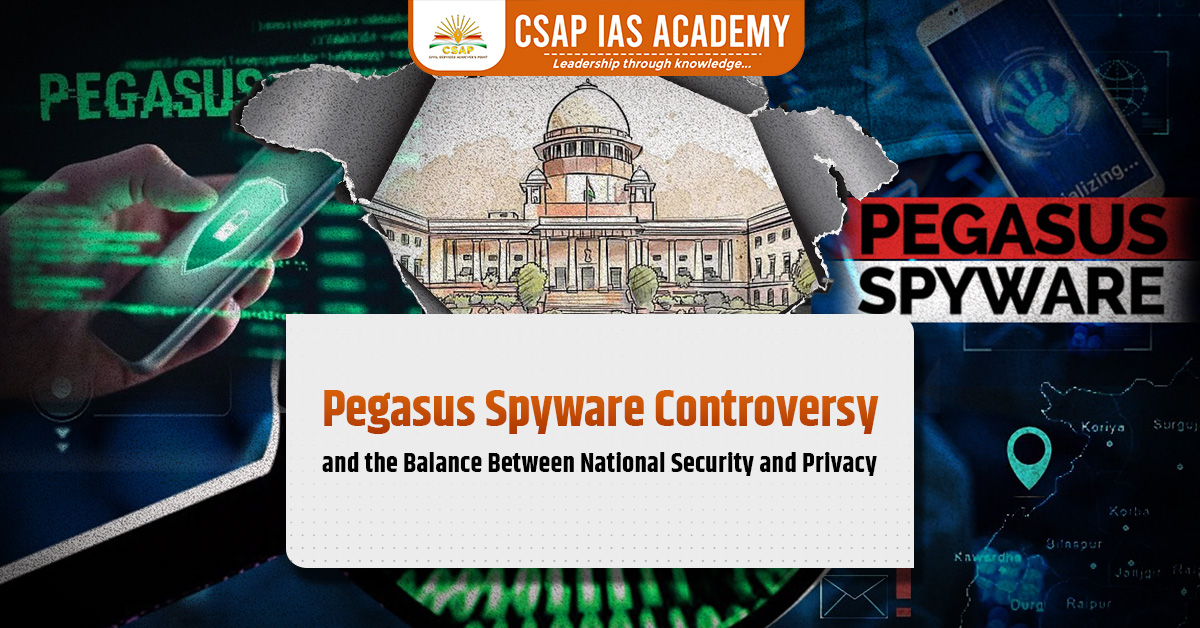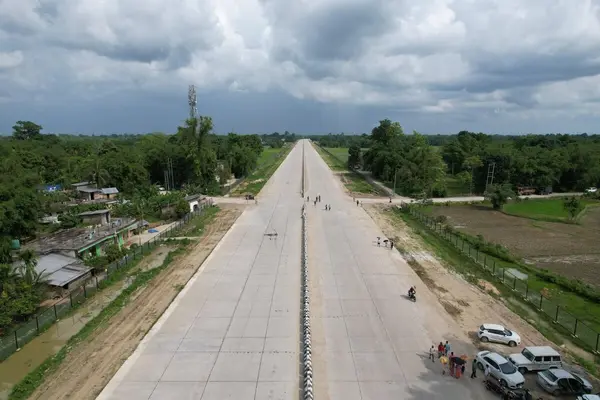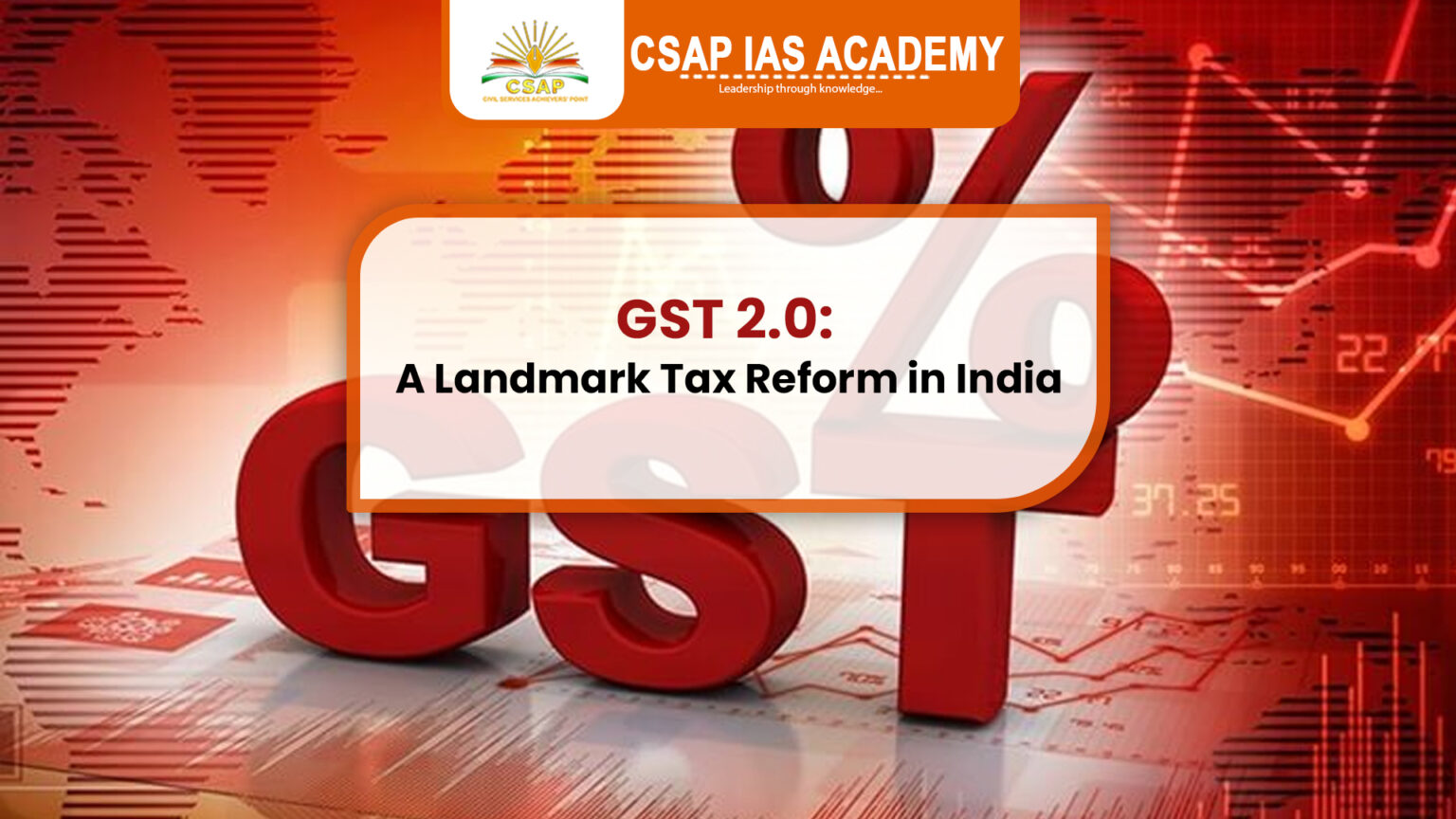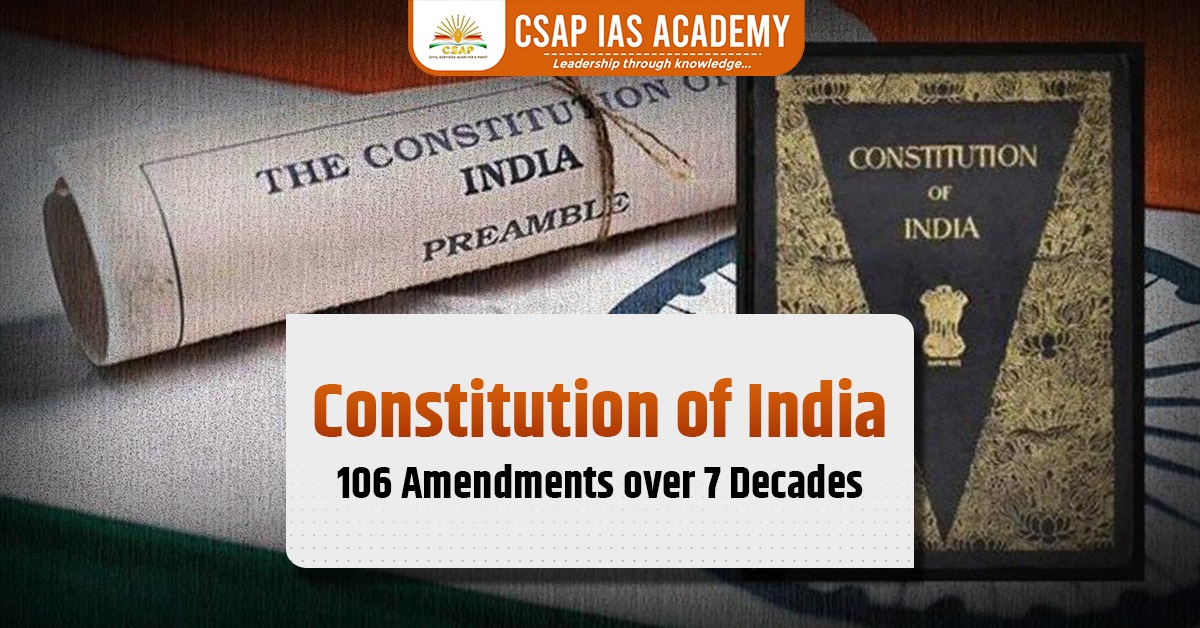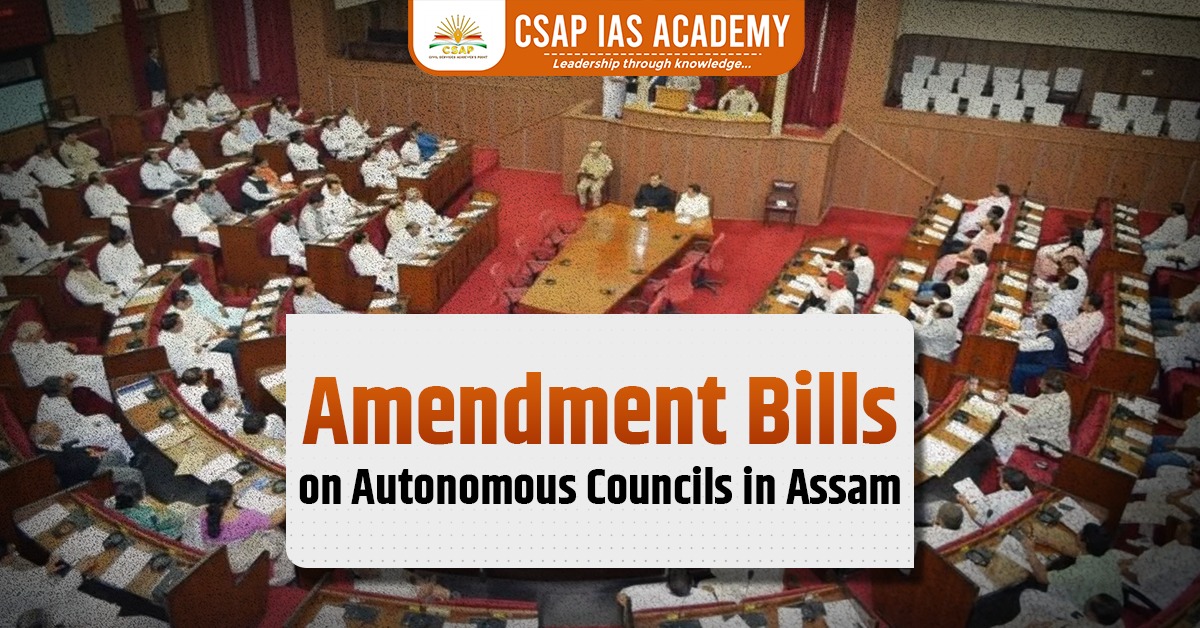The Pegasus spyware controversy has once again brought into focus the ongoing tension between the imperatives of national security and the constitutional guarantee of the right to privacy.
Recently, a Supreme Court bench comprising Justices Surya Kant and N Kotiswar Singh observed that there is nothing inherently wrong with a country using spyware for national security purposes. However, the court added a critical caveat—the concern arises when such spyware is misused against citizens who are not threats to the nation, such as journalists, activists, or political opponents.
What is Pegasus spyware and Why is it Controversial?
Pegasus is a sophisticated surveillance tool developed by the Israeli firm NSO Group. It can infiltrate a smartphone without any action by the user and gain access to messages, calls, emails, camera, and microphone. In 2021, an international investigative project known as the Pegasus Project revealed that the spyware may have been used to target hundreds of individuals globally, including in India. Among the names allegedly targeted were journalists, opposition leaders, human rights activists, and even judges.
Supreme Court’s Role and Observations
The matter was brought before the Supreme Court through a series of petitions, with demands for an independent investigation and public disclosure of findings. The Court, acknowledging the seriousness of the allegations, constituted a Technical Committee to probe the issue. Petitioners have since sought the public release of the Committee’s report. However, the Court clarified that while individual victims may be informed of the findings, any details that could compromise national security or sovereignty would not be made public.
During the hearing, the Court reiterated that the right to privacy is a fundamental right guaranteed under Article 21 of the Constitution. At the same time, it emphasized that national security is a paramount concern, and tools like Pegasus, if used appropriately and within legal bounds, cannot be dismissed outright.
Legal Framework and Lack of Oversight
India currently lacks a dedicated data protection or surveillance law. The legal basis for surveillance stems from the Indian Telegraph Act, 1885, and the Information Technology Act, 2000. These laws permit the government to intercept communication under specific circumstances such as national security or public order. However, there is a lack of independent oversight or judicial accountability in such surveillance, leading to concerns of potential misuse.
The Right to Privacy and the Puttaswamy Judgment
The Supreme Court’s 2017 landmark judgment in Justice K.S. Puttaswamy vs Union of India recognized the right to privacy as a fundamental right. The judgment laid down a three-part test to justify any infringement of privacy:
- Legality: Backed by a valid law.
- Necessity: Aimed at a legitimate state interest.
- Proportionality: The least intrusive measure must be adopted.
The alleged use of Pegasus against private individuals without sufficient safeguards appears to violate this test, if proven.
Government’s Stand on National Security
The Solicitor General, representing the central government, argued during the hearings that terrorists and anti-national elements cannot claim a right to privacy. He questioned the objection to the use of Pegasus spyware if it was being used to protect the country. The Court agreed that security cannot be compromised but also stressed the need to protect innocent citizens from unjustified intrusion.
Ethical and Democratic Concerns
In a democracy, state power must be exercised with responsibility and restraint. Surveillance without checks can lead to a surveillance state, where dissent is suppressed and privacy is eroded. This undermines democratic values and constitutional morality. The executive must ensure that any use of such tools is accountable and transparent within reasonable limits.
Conclusion
The Pegasus spyware controversy is not merely about the use of a spyware tool; it is about the principles that govern democratic societies. It brings to the forefront the need for a robust legal framework for data protection, stronger institutional oversight of surveillance practices, and a reaffirmation of the citizen’s right to privacy. The Supreme Court’s balanced observations highlight that while national security is non-negotiable, it should not become a pretext for unchecked state surveillance.
Read: Women’s role in the Assam Panchayat Elections
Download App:

